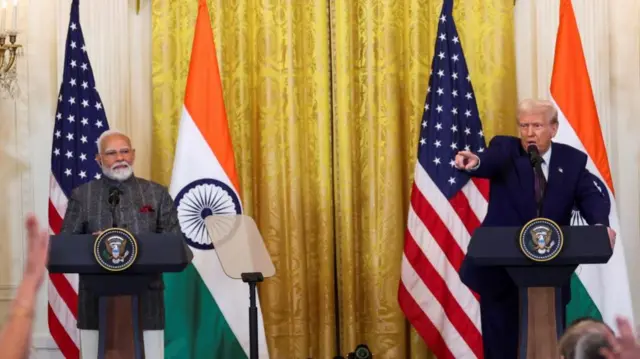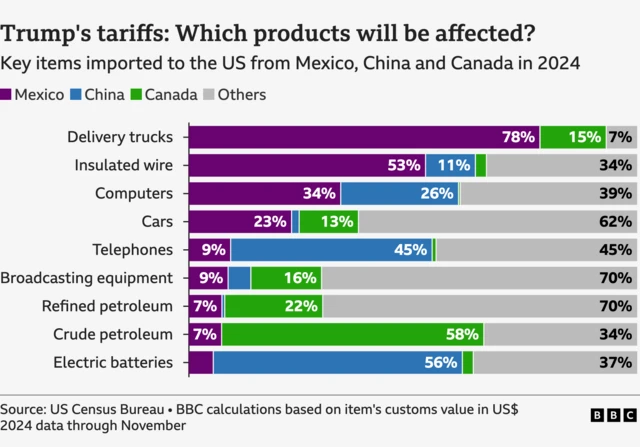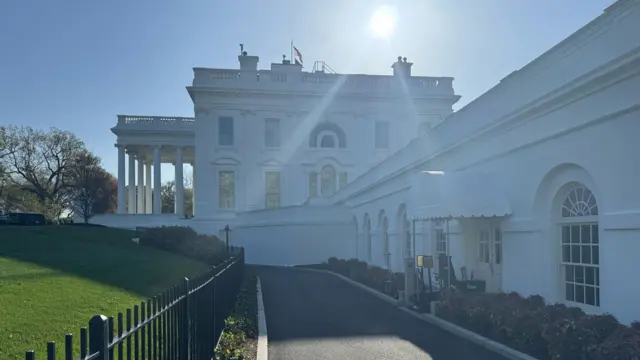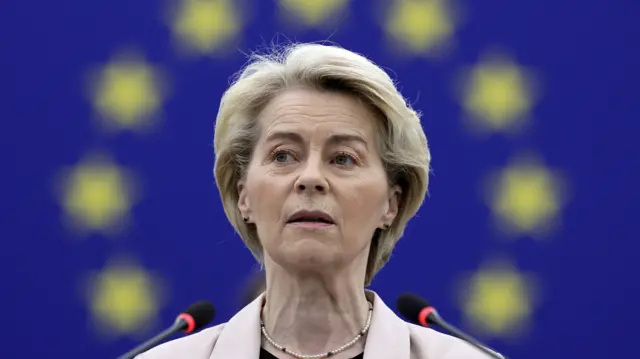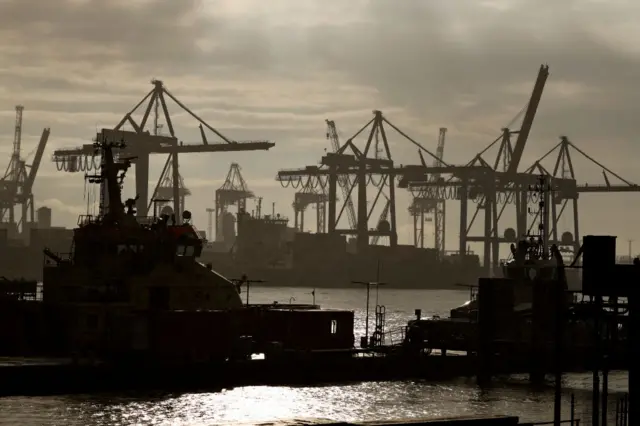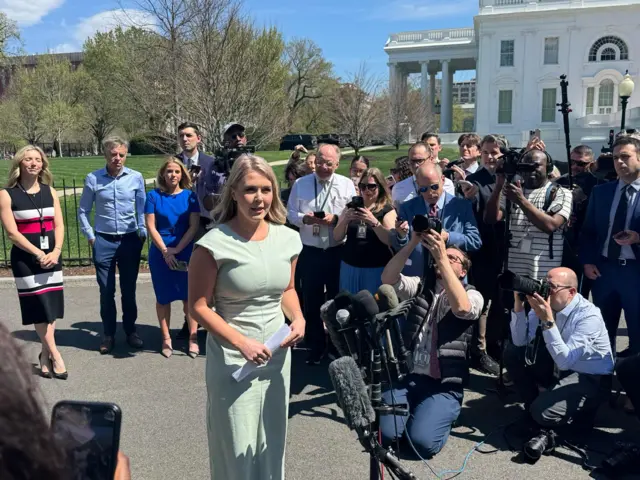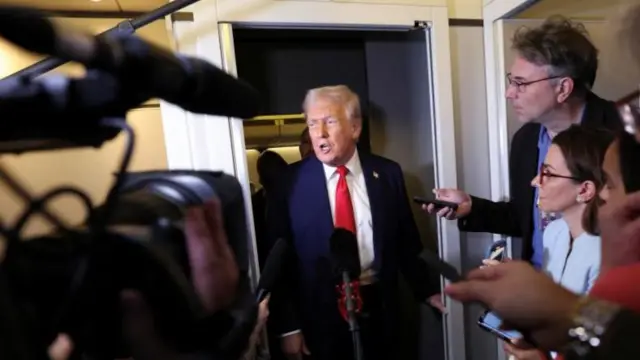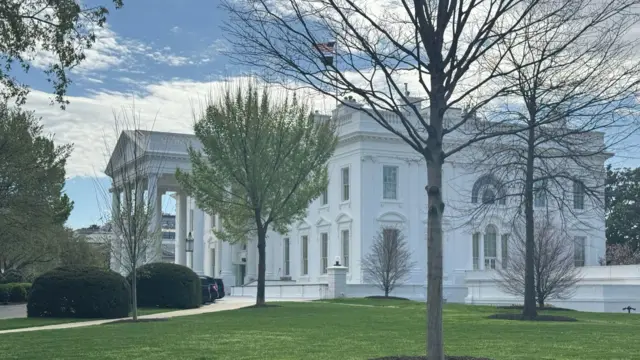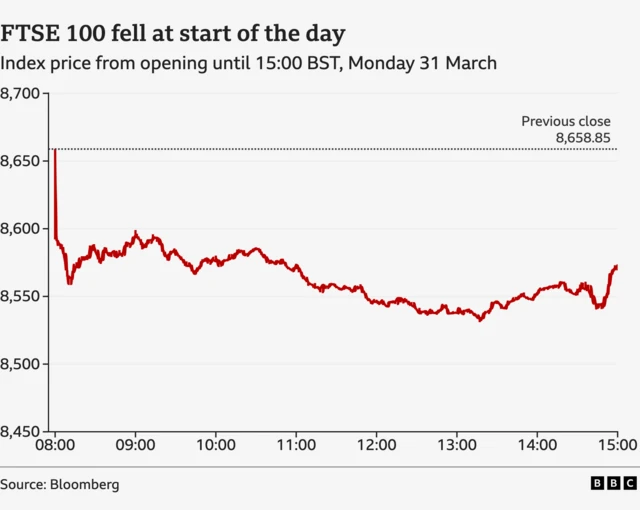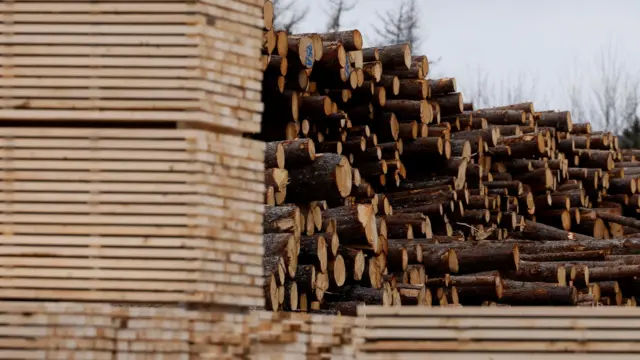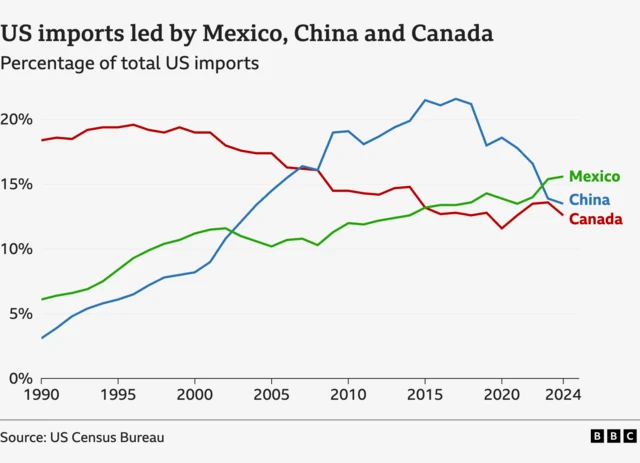How have other countries responded to Trump's tariffs?published at 15:41 BST 1 April
 Image source, Reuters
Image source, ReutersCanada could introduce further counter tariffs on 2 April
With one day to go until US President Donald Trump announces his new slate of tariffs, let's have a look at how other countries are responding to the impending taxes:
- China has introduced a 10-15% tax on some US agricultural goods. It has also targeted US aviation, defence and tech firms
- Canada has imposed a 25% tariff on US steel, aluminium and other goods worth about C$60bn ($42bn; £32bn)
- Mexico has delayed introducing its own retaliatory tariffs while negotiations continue
- EU tariffs targeting US goods worth €26bn (£22bn) will start on 13 April. They will cover items ranging "from boats to bourbon to motorbikes", as well as steel and aluminium products
- The UK has not yet announced any retaliatory measures, but Foreign Secretary David Lammy says the UK is preparing "for the worst" and "all options remain on the table"


